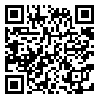Volume 7, Issue 1 (Journal OF Welding Science and Technology 2021)
JWSTI 2021, 7(1): 107-117 |
Back to browse issues page
Download citation:
BibTeX | RIS | EndNote | Medlars | ProCite | Reference Manager | RefWorks
Send citation to:



BibTeX | RIS | EndNote | Medlars | ProCite | Reference Manager | RefWorks
Send citation to:
Safari M, Rabiee A H, Joudaki J. Prediction of Weld Strength in Resistance Spot Welded Samples by Adaptive Neuro-Fuzzy Inference System (ANFIS). JWSTI 2021; 7 (1) :107-117
URL: http://jwsti.iut.ac.ir/article-1-372-en.html
URL: http://jwsti.iut.ac.ir/article-1-372-en.html
1- Arak University of Technology , m.safari@arakut.ac.ir
2- Arak University of Technology
2- Arak University of Technology
Abstract: (8701 Views)
Resistance Spot Welding (RSW) is one of the effective manufacturing processes used widely for joining sheet metals. Prediction of weld strength of welded samples has great importance in manufacturing and different methods are used by researchers to find the fracture force. In this article, the Adaptive Neuro-Fuzzy Inference System (ANFIS) is utilized for prediction of joint strength in welded samples by RSW. A design of experiments (DOE) is prepared according to effective process parameters includes welding current, welding cycle, cooling cycle and electrode force. The sheet metal samples prepared from AISI 1075 carbon steel. Tensile test specimens are prepared and the tensile-shear strength of welded samples are measured. A model is developed according to ANFIS and trained according to teaching-learning based optimization algorithm. 70 % of test data used for network train and the remained 30 % used for access the accuracy of trained network. The accuracy of the trained network was assessed and the results show that the trained network can predict the joint strength with high accuracy. The determination factor (R2) and mean absolute percentage error (MAPE) are 0.99 and 0.48 % for trained data and 0.95 and 6.2% for test data.
Keywords: Resistance Spot Welding, RSW, Joint Strength, Adaptive Neuro-Fuzzy Inference System, ANFIS, Teaching-Learning Based Optimization
Send email to the article author
| Rights and permissions | |
 |
This work is licensed under a Creative Commons Attribution-NonCommercial 4.0 International License. |






